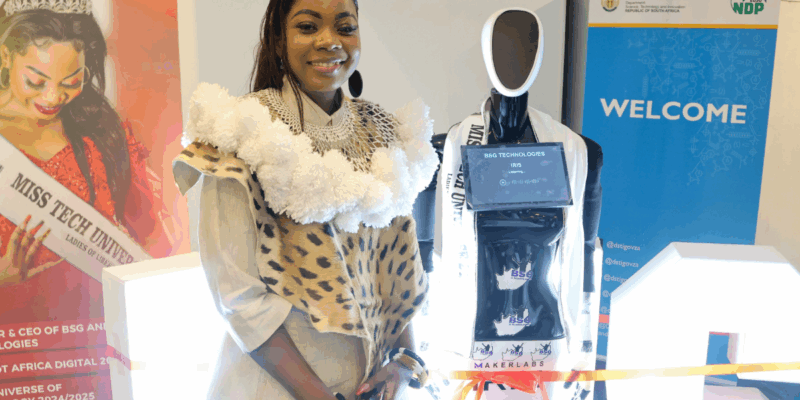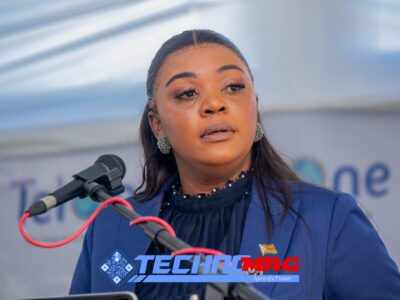South Africa made a significant leap in educational technology with the launch of Iris, the country’s first AI-powered robot tutor. The event took place at the Durban Royal Golf Club and was led by Deputy Minister of Science, Technology and Innovation, Ms. Nomalungelo Gina.
Iris, designed by KwaZulu-Natal innovator Ms. Thando Gumede and developed by BSG Technologies, is capable of teaching subjects from preschool to tertiary levels in all 11 official South African languages. This multilingual capability aims to address long-standing issues of access and inclusivity in the education system.
The robot employs advanced natural language processing, emotional recognition, and adaptive learning algorithms to deliver interactive and personalized lessons. During the launch, Gina emphasized Iris as a crucial step towards achieving technological sovereignty and highlighted the importance of women’s contributions to the fields of science, technology, engineering, and mathematics (STEM).
“This is not just a robot; it is a symbol of what our nation can achieve when we invest in homegrown talent,” Gina stated. “We must be the architects of our own digital future.”
Addressing concerns about AI displacing educators, Mr. Mbongiseni Mazibuko, Deputy Director-General of Curriculum Management and Delivery, clarified that Iris is designed to complement teachers, not replace them. “Technology is not our competitor; it is our collaborator,” he said, adding that the robot will help support teachers and personalize learning, especially in resource-strapped schools.
Ms. Gumede expressed her ambition to see Iris in classrooms across the nation, particularly in rural areas where qualified teachers are scarce. “Our goal is to make Iris affordable, accessible, and adaptable to every learner’s needs,” she said.
The launch also featured a live demonstration of Iris, which impressed attendees, including students from local schools. Grade 9 student Suhani Singh remarked on the excitement of seeing the robot teach in both Zulu and English, stating that Iris expanded students’ learning opportunities rather than replacing critical thinking.
While Iris is still in the prototype phase, its introduction marks a pivotal moment in South Africa’s educational landscape, with strong government backing and a commitment to fostering innovation and equity in education.















Comments